Table of Contents
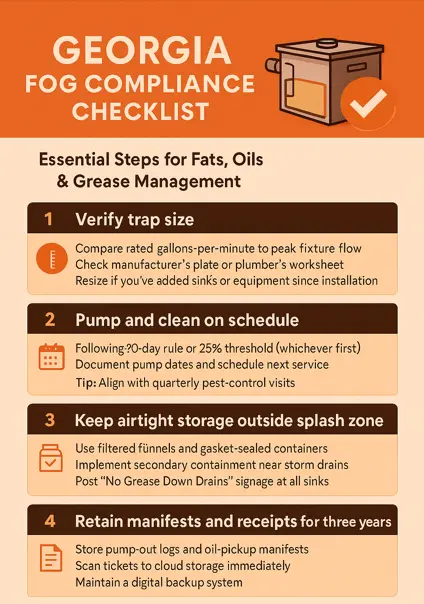
Georgia FOG Compliance Checklist
Download the Printable Checklist (PDF)
Grab a one‑page PDF version to tape on your prep‑sink wall—no email gate, just instant access.
Georgia FOG Regulations Overview
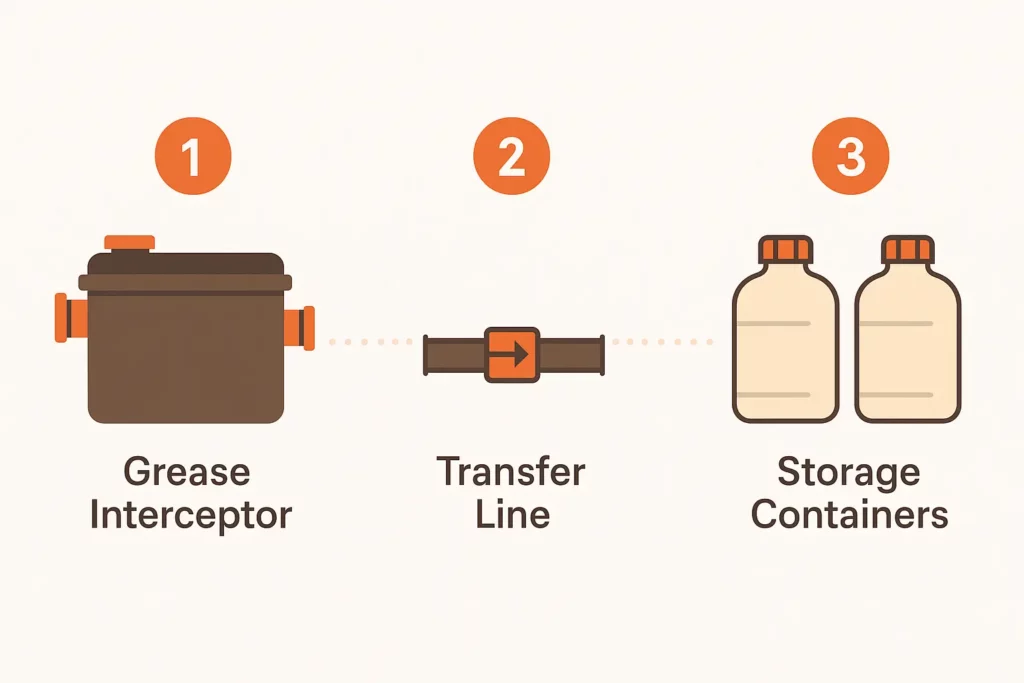
Georgia adopted the International Plumbing Code’s 90‑day pump‑out rule and the 25 percent surface‑grease threshold. In plain English, you must pump a grease trap when the floating grease layer, settled solids, and grease together occupy a quarter of the tank’s liquid depth or at least once every three months—whichever comes first. The state Environmental Protection Division (EPD) cross checks pump‑out manifests during routine health‑department inspections. While the Resource Conservation & Recovery Act (RCRA) governs hazardous waste, ordinary fryer oil sits under EPA’s “used‑oil” program, so you do not need a hazardous‑waste number unless the oil has been contaminated with solvents or heavy metals.
Georgia’s rules hinge on three pillars:
- Capture. Install an interceptor correctly sized for your peak flow rate. Undersized units overflow and draw red tags from inspectors.
- Contain. Store used cooking oil in leak‑proof, clearly labelled containers with secondary containment if you are within fifty feet of a storm drain.
- Confirm. Keep written or digital proof of every pump‑out and every oil pickup for at least three years on site.
County‑Specific Rules & Resources
The state leaves day‑to‑day enforcement to local jurisdictions. That means an Athens café answers to Clarke County Water Reclamation, while a Savannah fry house deals with the City of Savannah Pretreatment Program. Every agency publishes its own permit fees, manifest templates, and renewal calendars. A few highlights:
- Fulton County (Atlanta): Monthly electronic log uploads and an annual $150 interceptor permit. Random grease‑trap sampling at the operator’s expense.
- Gwinnett County: Pump‑out manifests must be emailed within five days of service. Fines start at $1,000 for missing paperwork.
- Chatham County (Savannah): Requires sampling ports on any new trap and proof of 24‑hour spill response training for staff.
- Low‑Population Counties: Most rural counties follow the state code verbatim—90‑day pump‑outs and manifest retention—without extra paperwork.
We maintain a live matrix of all 159 county links, fee tables, and renewal dates. Download it free and save a day of phone calls.
Find Your County’s Exact Requirements →
Step‑by‑Step Compliance Checklist
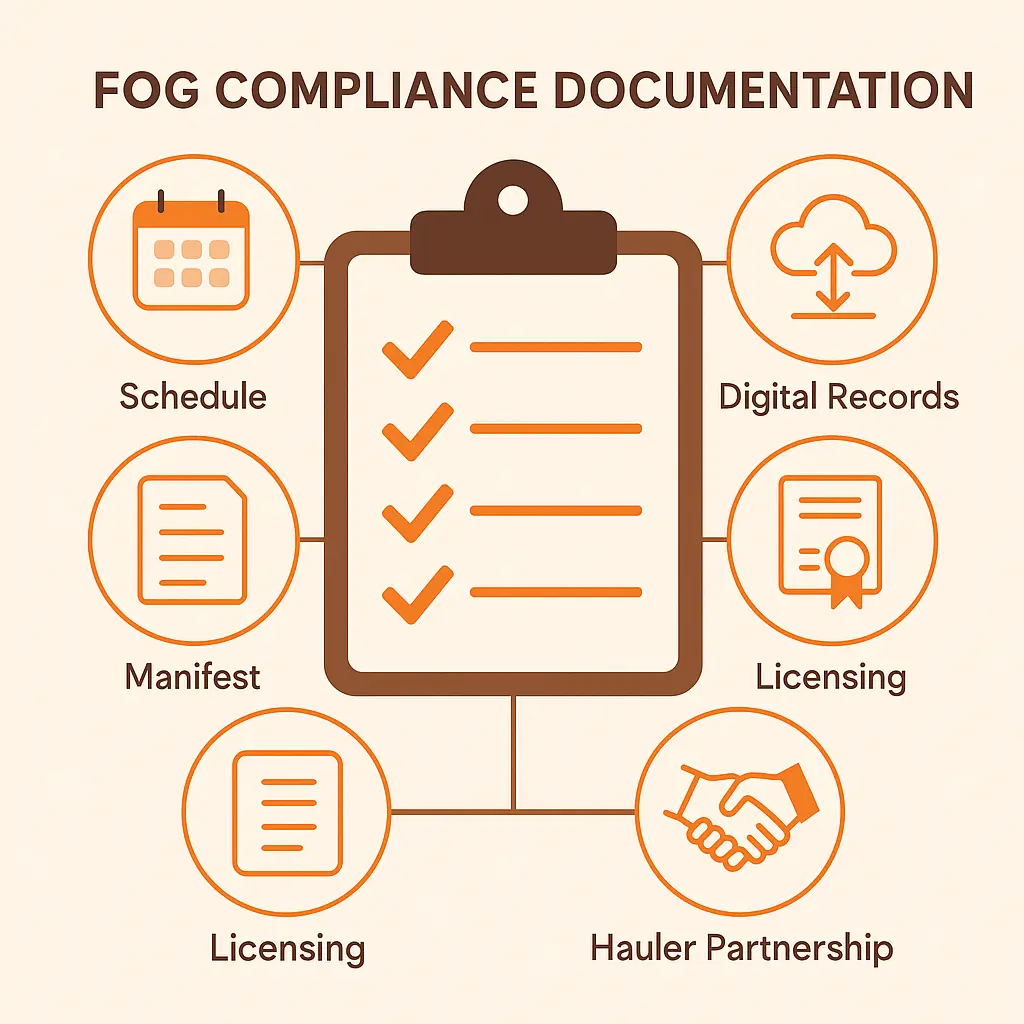
A checklist only works when each step answers the real questions a health inspector will ask. Below we translate code language into practical actions. Tack them onto your kitchen’s opening checklist and you will breeze through the next visit.
1. Verify trap size
Locate the manufacturer’s plate or original plumber’s worksheet. Compare the rated gallons‑per‑minute to your peak fixture flow. If you have added sinks, dishwashers, or prep stations since installation, resize now—inspectors flag undersized traps more than any other violation.
2. Pump and clean on schedule
Document the last pump date and schedule the next before you hit 25 percent grease depth. Many operators tie pump‑outs to quarterly pest‑control visits to keep vendors aligned.
3. Keep airtight storage outside the splash zone
Used cooking oil holds value only when it stays uncontaminated. Transfer hot oil through a filtered funnel into a gasket‑sealed steel or HDPE tank. Secondary containment, such as a plastic spill pallet, protects storm drains if a valve fails. Post a “No Grease Down Drains” sign above every triple‑sink as a daily reminder to staff.
4. Retain manifests and receipts for three years
Georgia inspectors ask for two things: the pump‑out log and the oil pickup manifest. Scan each ticket to cloud storage the same day service occurs. Digital copies satisfy auditors and survive coffee spills.
5. Partner with a licensed hauler
A hauler registered with Georgia EPD carries transporter ID on the truck door and provides a copy of its spill‑response plan on request. If a driver shrugs when you ask, pick another company. The hauler should also rebate you for the oil’s biodiesel value—typical rates run 20–35 cents per gallon at current commodity prices.
Penalties & Enforcement
Dumping fryer oil or allowing a trap to overflow triggers fines up to $25,000 per day under Georgia Code § 12‑5‑51. Municipal pretreatment programs can add surcharges for elevated biochemical oxygen demand (BOD) in your effluent, and property insurers often deny sewer‑backup claims when the source is grease negligence. Repeat offenders face health‑department closure until plumbing is certified clear.
Disposal & Recycling Best Practices
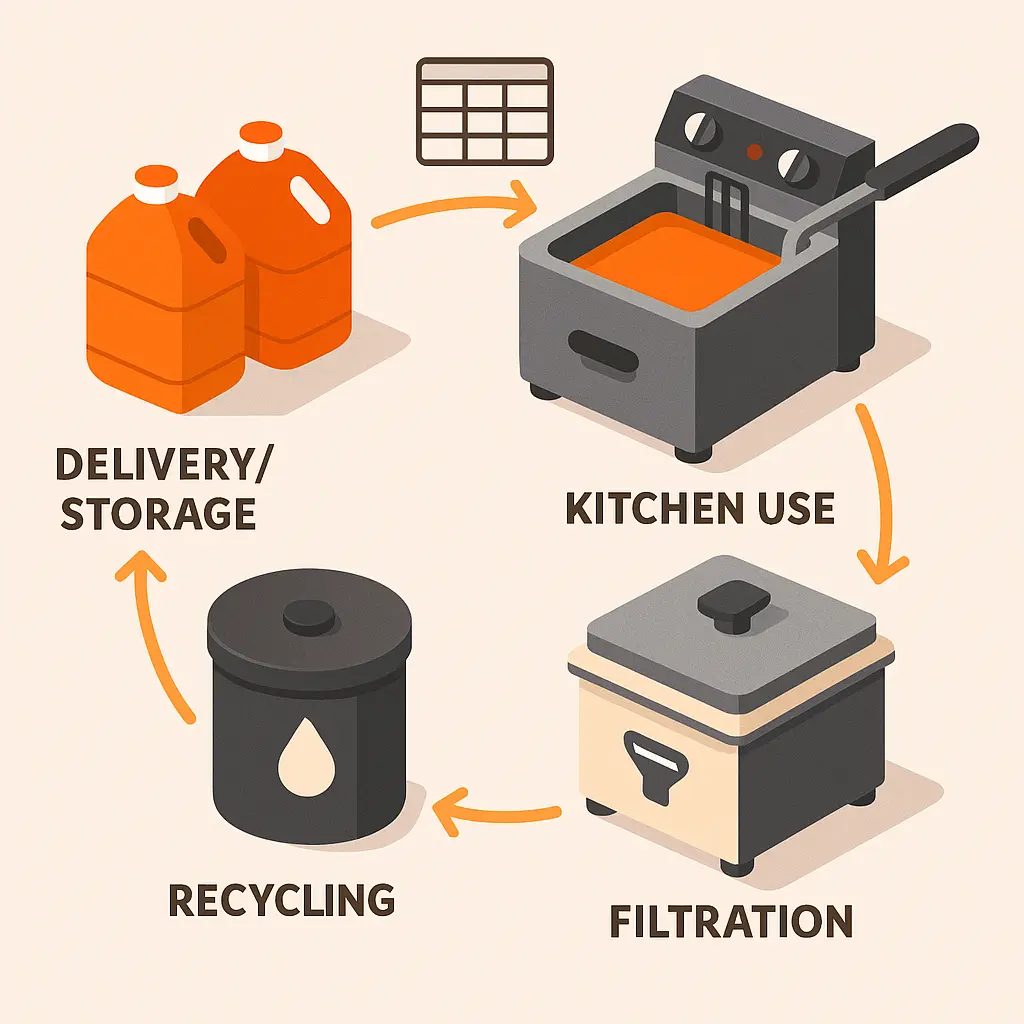
- Filter hot oil daily. A simple stainless‑steel screen removes crumbs that accelerate free‑fatty‑acid formation, extending fry life by two to three days.
- Cool and cover quickly. Oxygen, light, and heat speed rancidity. Cooling to 120 °F before storage prevents moisture condensation inside the tank.
- Dehydrate and degum at the plant. Licensed processors heat the oil to flash off water and run it through a clay‑bed filter before trans‑esterification, converting triglycerides into biodiesel. Every gallon of recycled oil avoids roughly 16 pounds of CO₂ compared to petrodiesel production.
- Reuse residues. The glycerol by‑product becomes a slow‑release fertiliser when blended with mineral nutrients. Small compost piles tolerate up to half a cup of filtered oil per cubic yard to boost microbial heat.
- Track every drop. Manifests confirm chain of custody; sustainability reports help you market zero‑waste milestones to diners and local media.
Choosing a Licensed Grease Hauler
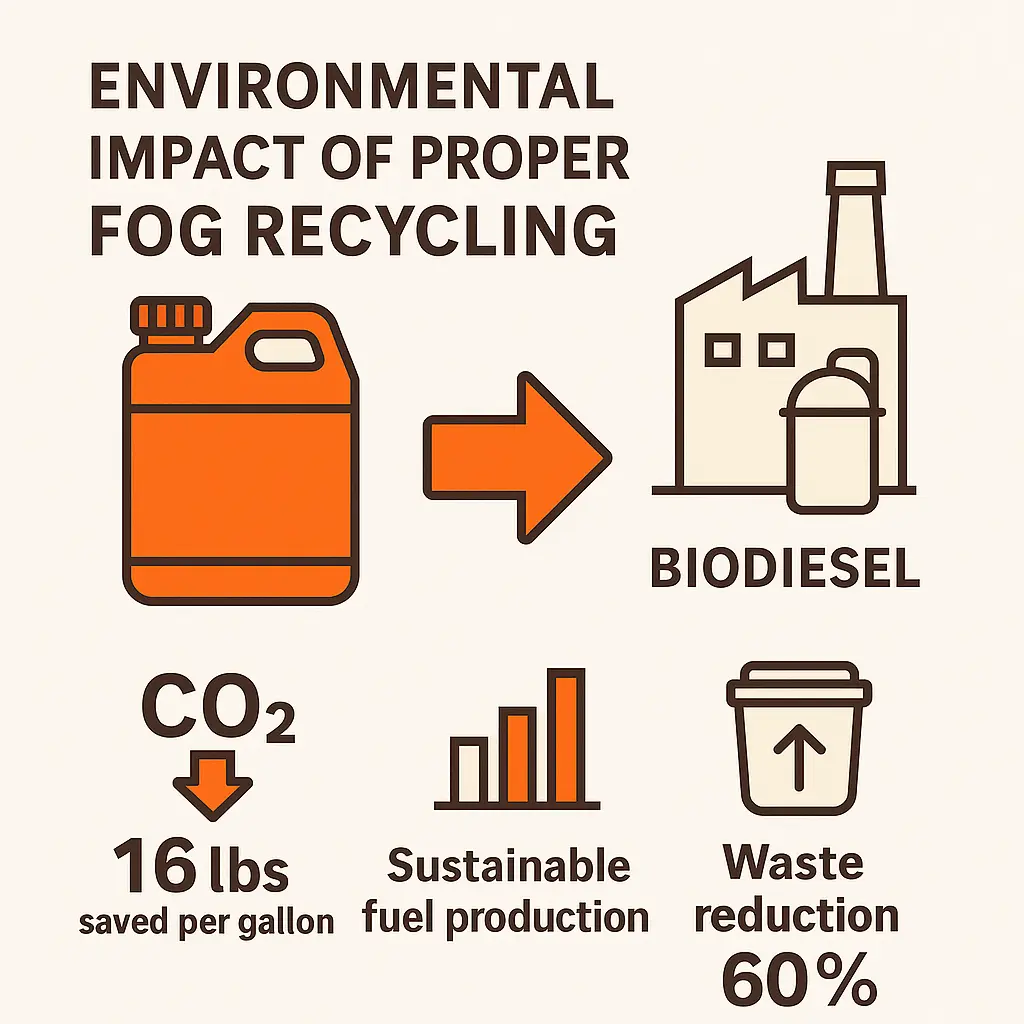
Not all haulers are equal. Look for:
- EPD registration & insurance. Verify transporter ID and $1 million liability coverage.
- Transparent rebate formula. A fair contract pegs your payment to the Argus yellow‑grease index minus transport and processing costs.
- Spill‑response readiness. Drivers carry absorbent pads, containment booms, and 24‑hour hotline numbers.
- Data portals. Top firms upload manifests automatically to county databases, eliminating paperwork for you.
- Sustainability reporting. Quarterly reports should translate gallons recycled into CO₂ savings you can share with customers.
Ask for three client references—ideally a quick‑service location, a full‑service restaurant, and a hotel kitchen—to test consistency across volumes.









